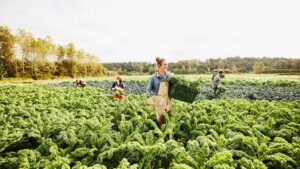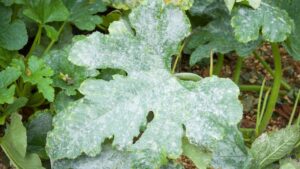Benefits Of Heirloom Seeds In Organic Farming – Embarking on an organic farming journey? Consider the invaluable treasure of heirloom seeds. These time-honored gems carry a legacy of biodiversity, resilience, and taste. In our modern agricultural landscape, where monoculture dominates, heirloom seeds offer a beacon of hope for sustainable farming practices. Beyond their historical significance, these seeds bring forth a plethora of benefits for both the environment and the consumer. From preserving genetic diversity to enhancing soil health, the advantages of heirloom seeds in organic farming are manifold. Join us as we delve into the seven key benefits that make heirloom seeds an indispensable asset for any organic farmer seeking to nurture the land and provide nourishing produce.
7 Benefits Of Heirloom Seeds In Organic Farming
1. Preserving Genetic Diversity
Heirloom seeds are prized for their genetic diversity, which has been preserved over generations. Unlike hybrid or genetically modified seeds, heirloom seeds have stable traits that remain consistent year after year. This diversity is crucial for resilience in the face of pests, diseases, and changing environmental conditions. By planting heirloom seeds, farmers contribute to the preservation of valuable genetic resources, ensuring that essential traits for adaptation and survival are maintained within plant populations.
2. Enhancing Flavor and Nutrition
One of the most compelling reasons to choose heirloom seeds is the superior flavor and nutritional quality of the produce they yield. These seeds have been selected over time for their taste, texture, and aroma, resulting in fruits and vegetables that are bursting with flavor. Additionally, heirloom varieties often contain higher levels of essential nutrients compared to their commercial counterparts, providing consumers with more nourishing and delicious food options.
3. Supporting Sustainable Agriculture
Heirloom seeds play a crucial role in promoting sustainable agriculture practices. Unlike conventional farming methods that rely on synthetic fertilizers and pesticides, heirloom varieties are well-suited to organic farming techniques. They require fewer chemical inputs, which helps to minimize environmental pollution and soil degradation. Additionally, the cultivation of heirloom seeds encourages crop rotation, companion planting, and other ecologically sound practices that benefit the health of the soil and surrounding ecosystems.
4. Adapting to Local Conditions
Another advantage of heirloom seeds is their adaptability to local growing conditions. Over time, these seeds have become uniquely suited to specific climates, soil types, and microenvironments. This adaptability allows farmers to select varieties that thrive in their particular region, reducing the need for artificial interventions such as irrigation or temperature control. By cultivating heirloom seeds that are well-adapted to local conditions, farmers can increase resilience and productivity while minimizing resource inputs.
5. Fostering Community Resilience
The use of heirloom seeds fosters community resilience by preserving traditional knowledge and cultural heritage. Many heirloom varieties have been passed down through families and communities for generations, carrying with them stories, traditions, and rituals that connect people to their land and ancestors. By continuing to grow and exchange heirloom seeds, communities maintain their autonomy and self-sufficiency, reducing dependence on external sources for food and agricultural inputs.
6. Promoting Seed Sovereignty
Seed sovereignty refers to the right of farmers and communities to have control over their seeds and agricultural systems. Heirloom seeds play a vital role in promoting seed sovereignty by providing farmers with alternatives to patented, commercially owned varieties. By saving and sharing heirloom seeds, farmers assert their independence from corporate seed companies and reclaim their ability to select, adapt, and breed crops according to their own needs and values.
7. Celebrating Cultural Diversity
Finally, heirloom seeds celebrate the rich cultural diversity of agricultural traditions around the world. Each heirloom variety carries with it a unique story and connection to the people who have cultivated it for generations. By preserving and promoting heirloom seeds, we honor the cultural heritage of indigenous peoples, rural communities, and small-scale farmers who have stewarded these seeds for centuries. Embracing this diversity enriches our food systems and strengthens the fabric of our global agricultural heritage.
Conclusion
In conclusion, the myriad benefits of heirloom seeds in organic farming are undeniable. From preserving genetic diversity and enhancing flavor to supporting sustainable agriculture and promoting seed sovereignty, these time-honored seeds offer a holistic approach to food production that nourishes both people and the planet. By choosing heirloom varieties, farmers can cultivate resilience, adaptability, and community solidarity within their agricultural systems. Furthermore, the celebration of cultural diversity and heritage embedded in heirloom seeds adds depth and richness to our food traditions. As we strive to build more resilient and sustainable food systems, heirloom seeds stand as a beacon of hope, guiding us towards a future where agriculture is regenerative, equitable, and deeply rooted in the wisdom of the past.
FAQs
What are heirloom seeds?
Heirloom seeds are open-pollinated seeds that have been passed down through generations, maintaining their unique traits and characteristics. They are typically at least 50 years old and are not genetically modified.
How do heirloom seeds benefit organic farming?
Heirloom seeds promote biodiversity, adaptability, and flavor, making them ideal for organic farming. They also help preserve genetic diversity and support sustainable agriculture practices.




